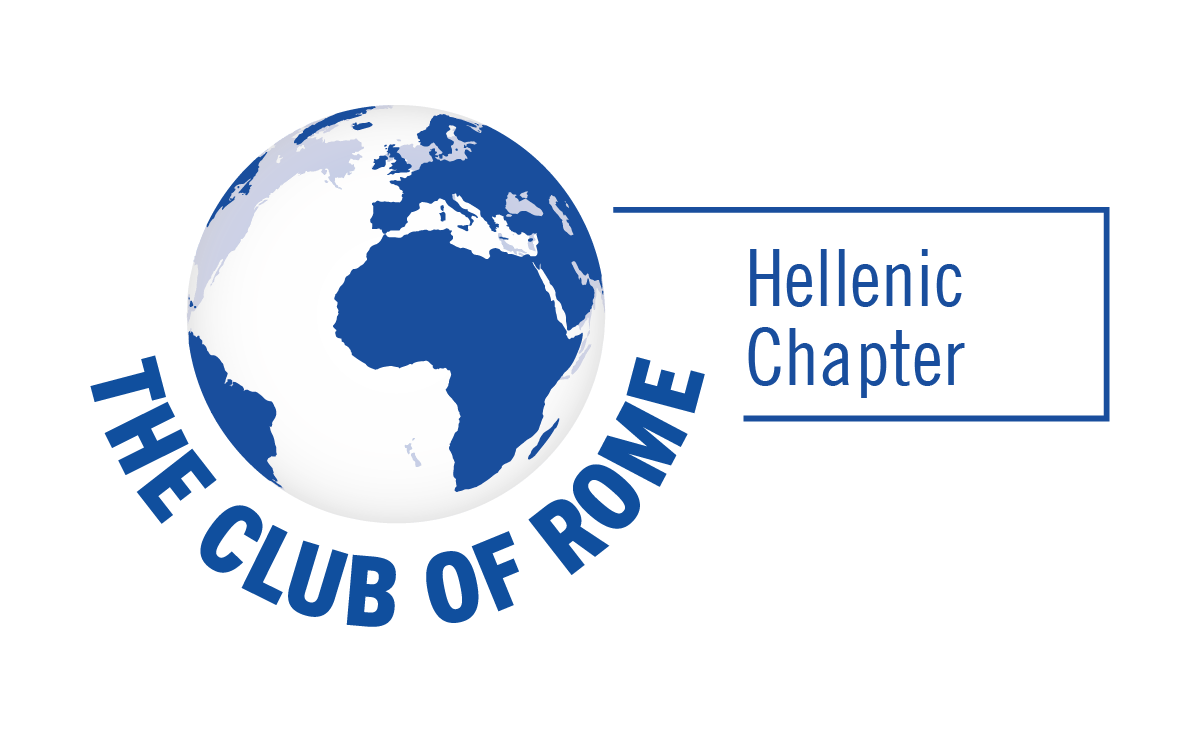Inspiration and Innovation for Climate Change Mitigation
9 January 2017 – Hilton Athens
Biopolicy & Development
Money Show
New developments in the field of international cooperation for climate change mitigation were discussed at an event jointly sponsored by the Biopolitics International Organisation and the Hellenic Chapter of the Club of Rome, at the Athens Money Show, on January 9, 2017. The event was themed “Inspiration and innovation for climate change mitigation – biopolicy & development” andfeatured distinguished speakers from science, politics, academia, the IT sector and the NGO community.
The discussions shed light on new paradigms that will help us save time and make decisive leaps forward in climate change mitigation. By taking into consideration the progress achieved in Paris and Marrakech, it is essential to question our choices and to form inspired decisions based on innovation and a new vision for the protection of “bios,” all life on our planet.
The event was chaired by Agni Vlavianos Arvanitis, President and Founder of the
Biopolitics International Organisation and the Hellenic Chapter of the Club of Rome, and speakers included: Rodi Kratsa, Chair of the Board of the Constantinos Karamanlis
Institute for Democracy and f. Vice-President of the European Parliament; Sotiris Mousouris, f. Assistant Secretary General of the United Nations; Michael Scoullos,
UNESCO Chairman on Sustainable Development Management and Education in the Mediterranean (MIO/ECSDE); Nikos Charalambides, Executive Director, Greenpeace Greece; George Saliaris-Fasseas, President for South Europe, IPG Mediabrands; Ioannis
Mangos, Chief Technologist, HPΕ First EMEA & APJ, Hewlett Packard Enterprise Software WW HQ; George Kazantzopoulos, Managing Partner, Global Challenges; Christos Eftymiopoulos, Researcher Α’, Center for Astronomy and Applied Mathematics, Academy of Athens; and, George Patoulis, Mayor of Amaroussion, President of the Central Union of Municipalities of Greece, and President of the Medical Association of Athens.
In her opening speech, Agni Vlavianos Arvanitis stressed how today’s societal and environmental challenges are pressing for a re-evaluation of political targets, as well as a
10 TIM. VASSOU ST., ATHENS 11521, GREECE TEL. (+30) 2106432419 FAX (+30) 2106426221 e-mail: ava@biopolitics.gr www.biopolitics.gr www.clubofrome.gr
re-evaluation of the concept of profit, in order to achieve development with a sustainable vision. “Climate change is destroying bios, and the Biopolitics International Organisation has been working hard for more than three decades to make the world acknowledge the urgency of the situation. It is encouraging that the climate talks in Paris resulted in positive steps forward. COP22 in Marrakesh was equally important, as it successfully demonstrated to the world that the implementation of the Paris Agreement is underway and the constructive spirit of multilateral cooperation on climate change continues. We must no longer allow for valuable time to be lost; the ticking clock of destruction is threatening both lives and livelihoods, and no economic policy makes sense if bios on our planet disappears.”
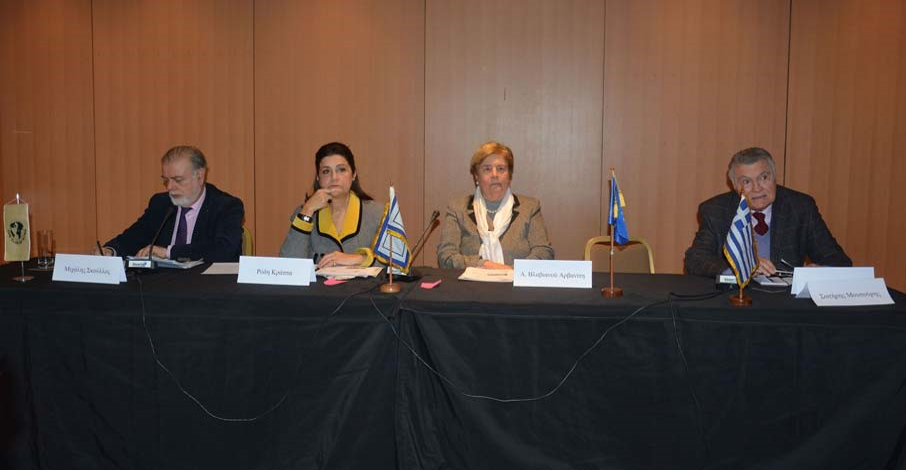
From left to right: Michael Scoullos, UNESCO Chairman on Sustainable Development Management and Education in the Mediterranean (MIO/ECSDE); Rodi Kratsa, Chair of the Board of the Constantinos Karamanlis Institute for Democracy and f. Vice-President of the European Parliament; Agni Vlavianos Arvanitis, President and Founder of the Biopolitics International Organisation and the Hellenic Chapter of the Club of Rome; and, Sotiris Mousouris, f. Assistant Secretary General of the United Nations.
Rodi Kratsa pointed out that the meeting was being held at a very crucial moment in the context of international negotiations for climate change mitigation. “The ratification of the Paris Agreement is a global success story for the abatement of global warming, and it is also significant that this ratification is based on understanding and solidarity between North and South. The Constantinos Karamanlis Institute for Democracy has promoted the close relationship between climate change and energy on a national as well as on a European level. The Institute has also promoted the importance of combining economic development with pollution reduction through new investments in innovation, new entrepreneurship and new employment opportunities for experts. New technologies and prevention measures are critically important and useful for Greece, a country which needs to demonstrate the political will to draft and deploy green strategies and development policies that are currently lacking.”
Sotiris Mousouris explained that the world community is experiencing many and diverse global changes, and proceeded to add: “In my opinion, the most important accomplishment for Ban Ki-moon as UN Secretary General is that his name is associated with the success of the Paris Agreement. In the framework of this agreement, developed countries will be required to contribute US$100 billion to help developing countries turn to clean and renewable energy and to tackle the impacts of climate change. The agreement also foresees that this amount will be increased if deemed necessary. These crucial steps for the future of our planet have also been supported by the Greek Government. I am still concerned, however, about the issue of environmental awareness and education, especially among young people. It is imperative for the young to be educated and informed about climate change, as it affects the quality of their lives, their present, their future and the future of their children.”
Michael Scoullos discussed the crucial role of international organizations in promoting environmental awareness and eliciting action. He also emphasized the importance of the 17 Sustainable Development Goals (SDGs) that were agreed in Paris, in December 2015. He explained that the SDGs are pivotal, because, unlike the Millennium Development Goals (MDGs) that had been ratified in 2000, the SDGs apply to all countries, not just those of the developing world. The European Union has been the first to set the SDGs as cornerstones for development, and has already proceeded with the ‘decoupling’ between GDP growth and energy consumption. Mr. Scoullos also spoke about the Action Plan on Education for Sustainable Development in the Mediterranean, which was unanimously adopted at the Ministerial Conference in Cyprus, in December 2016. The Action Plan was the result of a participatory and consensus building process, involving Member States of the European Union and the Mediterranean region, international and regional organizations and all other interested parties who joined forces towards making the Mediterranean region safe, healthy, prosperous and sustainable.
The second session of the panel discussion opened with Nikos Charalambides, who focused on the difficulties inherent in the application of sustainable energy policies. “The development and implementation of energy policies implies a 30- to 50-year time frame, well beyond the time in office of any politician, and this poses many difficulties. The good thing about climate change mitigation is that there are no technical gaps. The technology is there, and global investments in renewable energy sources are higher than investments in conventional fuels. We, as an international organization active within civic society, have searched for the right investment tools to help Greek citizens make the best use of available funds in order to perform energy upgrades in buildings or invest in clean technologies. There are many solutions out there. We should not ignore government, but we do not need to waste time waiting for enlightened leaders either.”
Ioannis Mangos pointed out that we have a false impression of most environmental problems, which are largely the result of our lifestyles and consumption patterns. “We live in a world of overconsumerism, which moves at a breakneck pace, creating false needs that result in thousands of products ending up in landfills. I believe it is essential for us as individuals and for society as a whole to become environmentally literate citizens and change our consumption patterns. It is our consumer behavior that determines supply and demand patterns, as well as pollution levels; in short, we are the ones responsible for propagating the problem. Only if we change our daily habits and become mindful citizens and consumers, will international climate agreements bear fruit. High technology has always been a ‘dirty’ business. Fortunately, today, there are people and companies, like Hewlett Packard and Google, that have espoused an environmental conscience and have created the necessary infrastructure so that 50% to 100% of their energy use is based on renewables.”
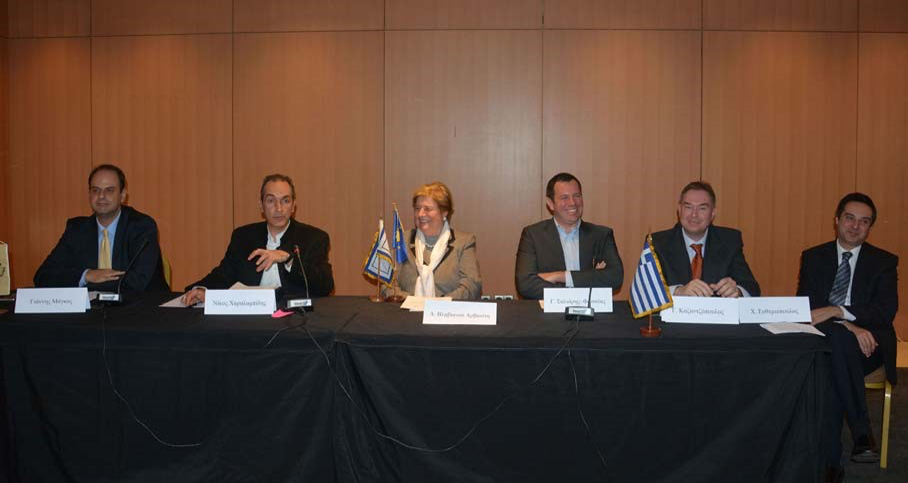
From left to right: Ioannis Mangos, Chief Technologist, HPΕ First EMEA & APJ, Hewlett Packard Enterprise Software WW HQ; Nikos Charalambides, Executive Director, Greenpeace Greece; Agni Vlavianos Arvanitis, President and Founder of the Biopolitics International Organisation and the Hellenic Chapter of the Club of Rome; George Saliaris-Fasseas, President for South Europe, IPG Mediabrands; George Kazantzopoulos, Managing Partner, Global Challenges; and, Christos Eftymiopoulos, Researcher Α’, Center for Astronomy and Applied Mathematics, Academy of Athens.
George Saliaris–Fasseas used brief examples to illustrate the importance of our daily choices as consumers and as service users, and how we can all make a difference in protecting the environment. “If children learn to respect the environment through their daily education, important steps in climate change mitigation can be achieved. Small, everyday changes in our behavior as consumers and service users can make a small but pivotal difference to the way we deal with climate change. Doing good to those around us and to the environment is the new way of thinking that we need to bring to our daily routine as active and concerned citizens.”
George Kazantzopoulos addressed the significance of the circular economy concept, whose principles are very close to Plato’s theory of a symbiotic relationship between the environment and human society. “The European Commission’s Action Plan for the Circular Economy which was submitted in Paris, in 2015, claims that it is unacceptable for EU Member States to abuse natural and energy resources. Products and processes should consume as few resources as possible in both the design and the production phases. Businesses should therefore focus on resource efficient production and consumption patterns, as well as on the right recovery and end-of-life recycling options. The above Action Plan, which has now become an urgent necessity, fully agrees with what the Biopolitics International Organisation has been publishing since 1985. If we were to look at these publications, which address the protection of bios, sustainable economic growth, and recycling, it is certain that we would arrive at a circular economy action plan equivalent to the one submitted by the European Commission.”
Christos Efthymiopoulos explained that it is the duty of scientists and international organizations to coordinate their efforts in order to convey to society the notion that it is scientifically proven that climate change is the result of human activity. “Scientists, active citizens and international institutions are responsible for informing and sensitizing society on the urgency of climate change mitigation, as well as on the irrefutable scientific fact that the present rate of climate change is human induced. We should also become convinced that by changing our daily habits we can indeed make a difference. A study carried out by the Academy of Athens some years ago demonstrated that our daily choices as citizens and as consumers play a pivotal role in climate change mitigation. They could even lead to a reduction in the cost of implementing the Paris Agreement. To achieve the required changes in attitudes, we need a top-down approach to education. Public awareness and civic education can lead to the necessary steps forward.”
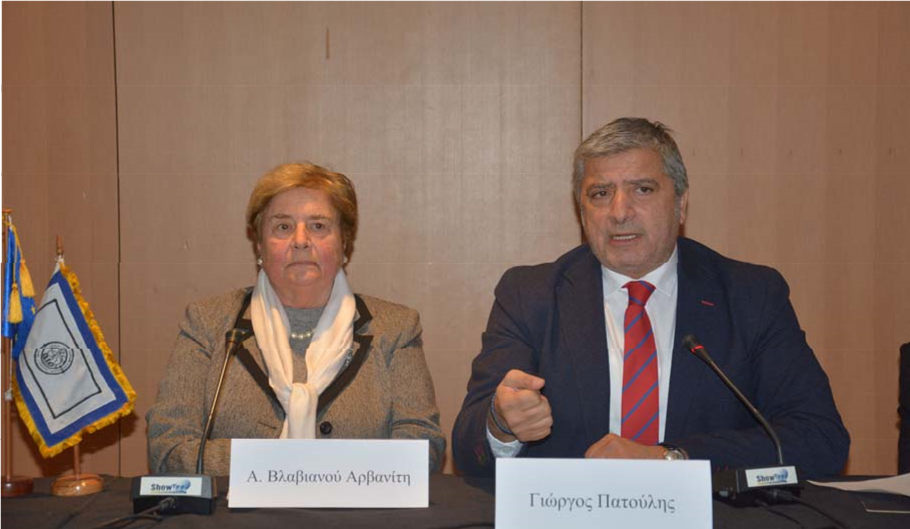
Agni Vlavianos Arvanitis, President and Founder of the Biopolitics International Organisation and the Hellenic Chapter of the Club of Rome with George Patoulis, Mayor of Amaroussion, President of the Central Union of Municipalities of Greece, and President of the Medical Association of Athens.
The event concluded with George Patoulis, who spoke about the contribution of the local authorities to climate change adaptation and mitigation measures. “A big obstacle in our country is the fact that we have not proceeded with the necessary reforms to give local authorities the power to solve local problems. And this creates a huge bureaucracy which is counterproductive and impedes development. Climate change has many ramifications, reaching beyond our everyday choices as citizens. An active and concerned citizenry can shape public conscience and bring results. In this effort, it is essential to make use of the vast renewable energy sources available in our country. Wind energy, solar energy and other renewables can guarantee energy self-sufficiency, improve the country’s financial condition and reduce emissions through best practices. Alternative energy sources, sustainable waste management, recycling, environmental education and sensitization, solar panels, teleheating, geothermy, and education and vocational training, need to become priorities on our agendas. Local authorities can and ought to play a principal role in environmental decision-making in cooperation with the legislative power.”
